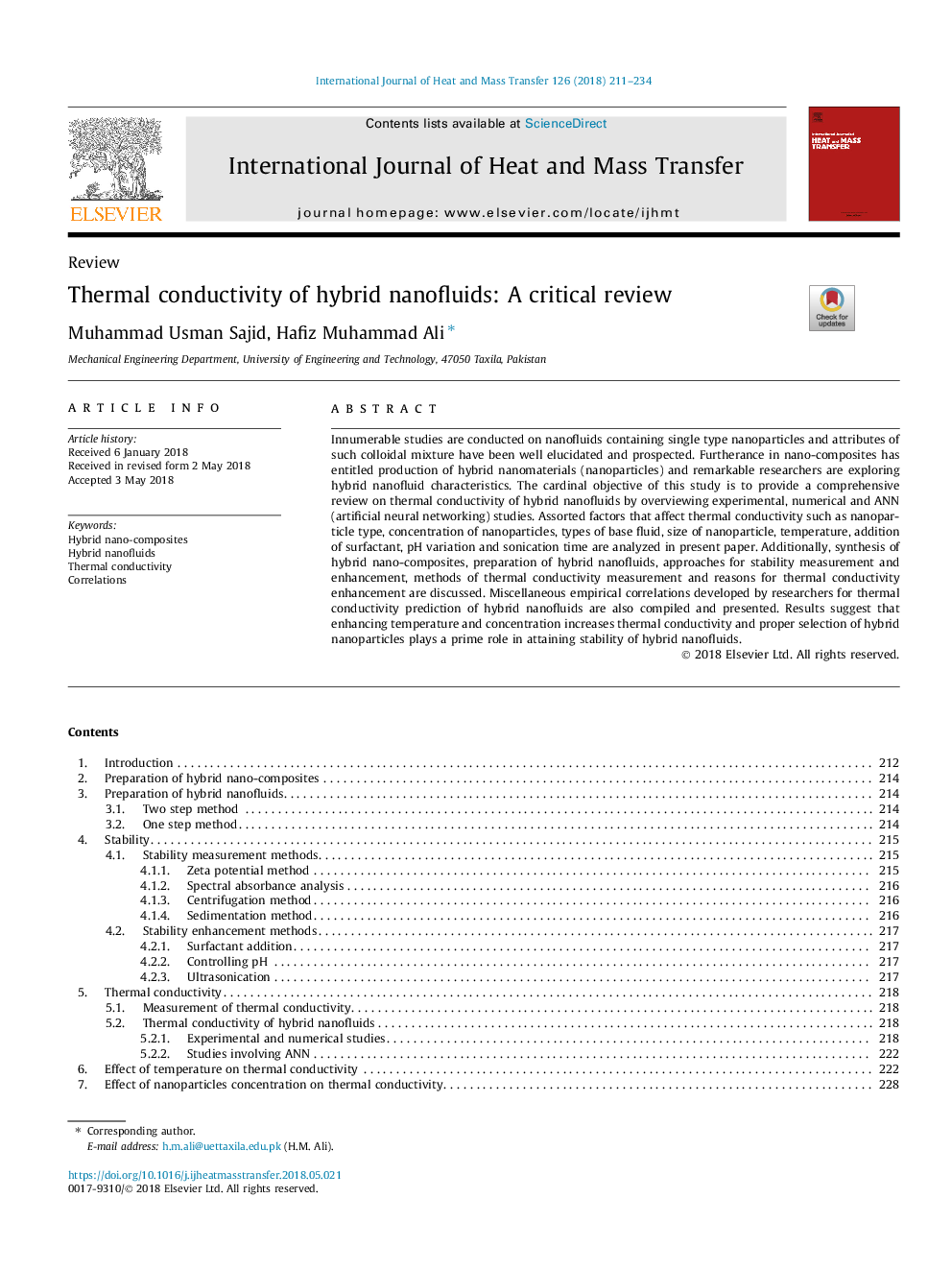| Article ID | Journal | Published Year | Pages | File Type |
|---|---|---|---|---|
| 7053946 | International Journal of Heat and Mass Transfer | 2018 | 24 Pages |
Abstract
Innumerable studies are conducted on nanofluids containing single type nanoparticles and attributes of such colloidal mixture have been well elucidated and prospected. Furtherance in nano-composites has entitled production of hybrid nanomaterials (nanoparticles) and remarkable researchers are exploring hybrid nanofluid characteristics. The cardinal objective of this study is to provide a comprehensive review on thermal conductivity of hybrid nanofluids by overviewing experimental, numerical and ANN (artificial neural networking) studies. Assorted factors that affect thermal conductivity such as nanoparticle type, concentration of nanoparticles, types of base fluid, size of nanoparticle, temperature, addition of surfactant, pH variation and sonication time are analyzed in present paper. Additionally, synthesis of hybrid nano-composites, preparation of hybrid nanofluids, approaches for stability measurement and enhancement, methods of thermal conductivity measurement and reasons for thermal conductivity enhancement are discussed. Miscellaneous empirical correlations developed by researchers for thermal conductivity prediction of hybrid nanofluids are also compiled and presented. Results suggest that enhancing temperature and concentration increases thermal conductivity and proper selection of hybrid nanoparticles plays a prime role in attaining stability of hybrid nanofluids.
Related Topics
Physical Sciences and Engineering
Chemical Engineering
Fluid Flow and Transfer Processes
Authors
Muhammad Usman Sajid, Hafiz Muhammad Ali,
